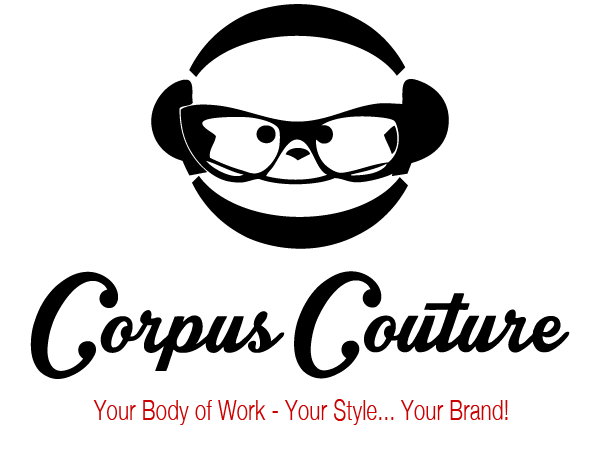Today’s student success spotlight is with Deveren Fogle. We’re sharing a different story each week of how a past student has been able to significantly grow their freelance business by applying the concepts they learned from Double Your Freelancing (check out last week’s with Thom O’Leary).
If you feel your story would be a good fit, share why. We’re looking for features for May, so apply today!
Deveren Fogle runs Corpus Couture, LLC, a web development and web strategy agency. They’ve also built HTML5 ads for various clientele, are experts at digital animation and love creating explained and training videos for companies, along with new products/services.

What got you into freelancing? Was it what you expected?
I’m an attorney by degree, but I started freelancing after I decided to outsource an iOS fitness app. I had no real technical skills, but had a “great idea” for an app, so I just went for it. It was my million dollar idea that of course did not make a million dollars. But it was the beginning of my freelance career – six-years ago.
“Since then I’ve built not only a very good team of designers and developers domestic and abroad, but my own technical abilities as well.”
I began developing simple WordPress sites when I had limited technical ability, but I was really good at understanding client’s issues and where they wanted to go. I was able to use one of my more skilled developers to fill in when needed.
I started freelancing with that team, and I do believe it was what I was expecting. I’ve been running my own businesses for a while, so I knew what to expect regarding freelancing in general.
“However, I definitely pulled my hair out many times because I didn’t have systems in place.”
I often couldn’t figure out my direction, what I should be charging, and how to not be thought of as merely a web developer. As an attorney by education, I knew I had a lot more I could add to projects, outside of the general development.
What’s been most challenging thus far?
Before studying DYFR, the most challenging aspect was finding a direction and figuring out how to find work on a consistent basis. Additionally, learning how to price what I do.
For a while I wondered if I had any business really entering a tech type of industry, particularly since I’m not a true developer. So sometimes the self-doubt was one of the most challenging aspects.
“After learning more, I see that there are numerous opportunities to use my hybrid experiences and skills to run an agency at a high level.”
… as long as I start positioning and finding exactly what I want to do going forward. Yes, again finding a specific position regarding who my customers are is definitely the hardest thing to do. Now, I see how doing that will truly work in my favor growing the company!
Did you ever want to quit or give up?
The first four years I was doing health and fitness, while doing a little bit of website programming. The last couple of years have been really tough, and I thought about giving up at least once a week.
“I even went through an extensive resume rewrite and submission process.”
I stopped looking for new projects, and decided to just put all of my energy into finding a conventional job. I quickly realized that being an entrepreneur put me at an extreme disadvantage. I got one phone interview, which basically happened because I knew someone at the company; other than that I had no prospects.
Whether I was applying to jobs at my level, or significantly below my “pay grade,” I didn’t receive any interest. And this was even after I spoke with headhunters, and professional resume writers.
I really just wanted to no longer feel the stress of not knowing where my next project was going to come from, how I was going to grow the business, or make what I was doing into a business in the first place.
What were you struggling the most with when you ran into Double Your Freelancing Rate?
I had no direction, plain and simple. I also had no idea how to run an agency: from what I should charge, how to write a proposal and how to structure an engagement, to how I should pitch what I do.
“Heck, at times I didn’t even know what I did some of the time.”
This was a packaging problem as it turns out. Again, I had a lot of self-doubt – I’ll go ahead and call it fear.
Brennan’s courses have taught me how to structure a real business that can grow and be sustainable in the future. As skeptical as I can be, I really identified with his story.
What are some big successes you’ve had recently? Did you do anything differently?
“My income has basically doubled from my entire last year in the first three months of this year.”
Late last year I started to have some good successes with a consulting gig I received, which I found from networking on LinkedIn. Don’t sleep on the power of LinkedIn for opportunities. LinkedIn “cold messaging” was also a first for me, and something I highly recommend.
After that I decided that I needed to put all of my energy into really developing a web development/design agency. I had been following Brennan’s stuff for a while, and was reading all of his free content. When I saw the opportunity to sign up for Double Your Freelancing Rate, I jumped at the opportunity.
From reading the description, it had everything I did not know how to do, and other things I didn’t think I needed to know how to do. About a week into going over the materials, an opportunity to write my first proposal came through. What timing!
“I basically followed Brennan’s advice, and scripts exactly.”
All of his materials (such as the contracts, etc) are terrific tools that will make you stick out from other developers. In the first meeting, the client kept mentioning how good the questioning was, and that others have never asked them such detailed questions.
This was happening so fast, I couldn’t even do the other assignments Brennan was suggesting. I was just skipping ahead in the book, and ended up winning the contract because of DYFR.
“After only a month of reading DYFR, I had closed a month-long $16k project with a high-end dentist on Madison Ave. NYC, and am now on a monthly retainer with more projects coming soon with just them.”
The organization, information and materials have more than paid for themselves. These courses really help you to determine the true value you bring to the table, and help you educate the client as to how they should perceive their own value.
Many times these businesses are trying to find the right solutions to problems, but don’t even know themselves how much those solutions are worth it to them. I was able to show them using what Brennan teaches in his courses.
What are some specific tactics, strategies, or pieces of advice that have really helped you grow?
1. When writing a proposal be as specific as possible. Chances are, when you’re dealing with another person who runs a company, they are pretty smart individuals. While they may be as nice as can be, people will always expect more unless it’s clearly written out. I did this and it has saved me numerous headaches with this particular client.
2. Think not in terms of an hourly rate for a project, but overall value that you’re bringing to the project. When you price in these terms it leaves little room for your client to try and negotiate to lower your hourly rate.
“Surprisingly, none of my clients have even mentioned what the hourly rate is because I’ve been so “matter of fact” with my pricing structure, and continually tie my costs to the value a particular service will provide. Namely, more money for them.”
3. Always stay in control of the engagement. If you feel it slipping away because the client is trying to get something out of you that was not initially scoped, don’t answer too quickly. Tell them that you will get back with them so you can write up a good response. This type of thing can be avoided even better by developing a specific systemized approach in the very beginning of the project.
These courses are truly invaluable to your bottom line. It’s very motivating to have a real plan of attack when building your business. For the first time in six years, I truly feel like I have a handle on what I should be doing, and how.
Before now, I was really concerned with where my business was going, and whether I had made the right decision to begin my entrepreneurship journey. I was literally trying to find normal employment, and was having a hard time because I had been out on my own for so long.
“I no longer have that fear because this stuff really works. Sounds corny, but it has changed my life!”
What are you most excited about for your business in 2015?
I’m really excited about my business in 2015, especially with the Double Your Freelancing Client’s course. Since I had a lot of success from just studying Double Your Freelancing Rate, I’m confident that the success will continue.
The systems that I’ve learned in the first part of DYFC have already given me more direction. With this direction and organization, I’m no longer stressing out as to how I will build a business. I know I just need to apply what I learn, and challenge myself to do what’s required. The results have already been proven.
I’m also excited that I will be launching a new product/service as a result of some brainstorming and assignments from DYFC. I’m still working on the content and product that I am creating. More on that coming soon!
 Deveren Fogle is a graduate from St. John’s Law School, and runs Corpus Couture, LLC, a web development, marketing, and design agency based in New York City. Before freelancing he launched his first iOS app called MyGeniusTrainer and appeared in Entrepreneur Magazine as its ‘Trep Of The Month in 2012.
Deveren Fogle is a graduate from St. John’s Law School, and runs Corpus Couture, LLC, a web development, marketing, and design agency based in New York City. Before freelancing he launched his first iOS app called MyGeniusTrainer and appeared in Entrepreneur Magazine as its ‘Trep Of The Month in 2012.
He’s been freelancing for the last six-years, and recently has worked with large brands building interactive HTML5 ads, including: Adobe, Mashable, Cadillac, Vanguard, Wells Fargo, and others. Deveren is currently working on a new product for medical offices to help them develop and maintain a better web presence in this ever changing internet landscape.